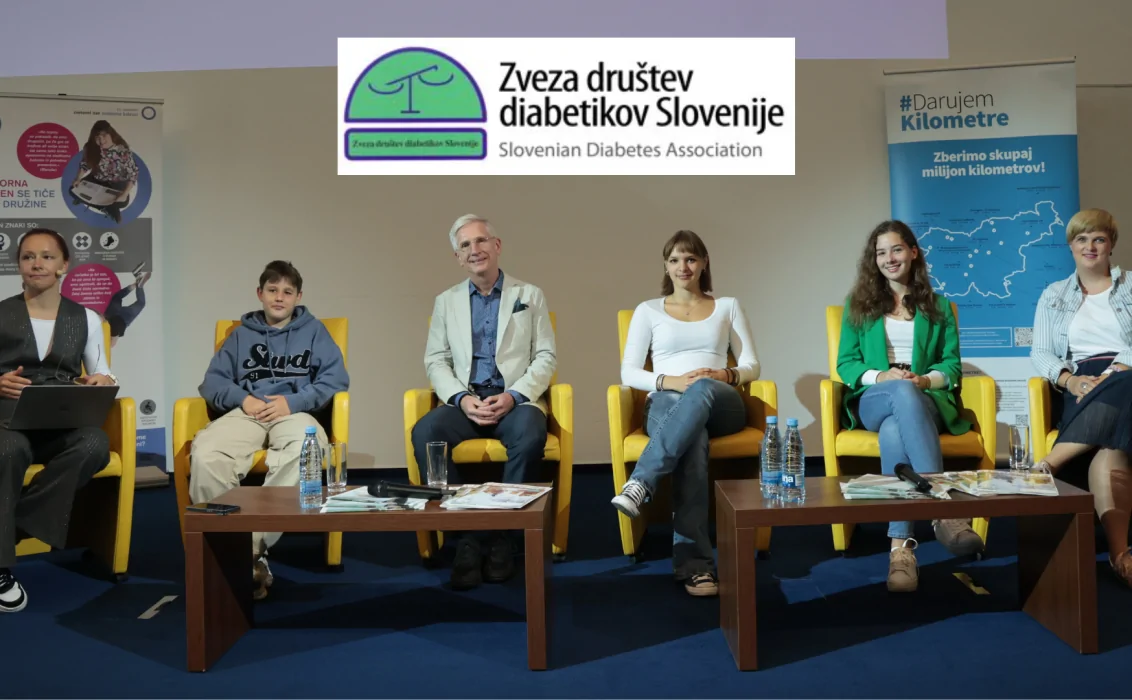On September 24, the Slovenian Diabetes Association organised a public event, the “Sweet Forum”, at the Medical Chamber of Slovenia in Lubljana, where young people living with Type 1 diabetes (T1D), their peers, parents, teachers and healthcare professionals (HCPs) gathered to discuss the challenges they face in their everyday life. The event aimed to raise awareness of diabetes and of the importance of healthier lifestyles for all, regardless of their health condition.
Opening up on daily challenges with T1D
At the Forum, several young people living with T1D shared the everyday challenges they face due to their condition, shedding light on the lack of awareness and support they encounter.. They voiced a strong need for deeper awareness and understanding of diabetes, especially among their peers, and for schools to better accommodate students living with the condition. Many described how feeling different because of diabetes can be isolating and spoke about the need for more inclusive environments, particularly in schools.
Laura, a high school student, explained how her participation in the school competitions on diabetes (an initiative organised each year by the Slovenian Diabetes Association), influenced her own lifestyle, leading her to adopt healthier eating habits. She expressed the desire to see health education integrated into school curricula so that all students could benefit from early, structured knowledge on nutrition and physical activity.
The young participants stressed that healthy lifestyle choices are essential not just for people living with diabetes (PwD) but for everyone.
Advocacy for improved school support and physical activity
A recurring theme among participants was the need for greater support within the school system, particularly during physical activities. While regular exercise is encouraged as a key component of managing T1D, students noted a lack of understanding of and adjustments for their needs. Urban, an eight-grader who practices breakdance, spoke about the life-changing benefits of using an insulin pump. “The insulin pump really helps me to control my blood glucose levels during training. Without it, everything would be harder. However, I wish there was more understanding among my classmates – sometimes they do not know what to do when my blood glucose levels drop or spike.”
Some of the young people not living with diabetes who attended the Forum explained that it was only through their participation in the event and school competitions on diabetes that they realised the seriousness of the disease, the importance of healthy lifestyles and the daily adjustments required by those living with the condition.
The medical perspective on access to technology and education
The Forum also featured insights from leading experts, including IDF Europe Chair-Elect, Prof. Tadej Battelino, who highlighted the critical role that technology plays in improving the quality of life of people living with T1D. Devices such as insulin pumps and continuous glucose monitors (CGMs) have transformed diabetes management, making it possible for PwD to maintain stable blood glucose levels more easily.
“Modern technology greatly reduces the daily burden of the disease. Our task as a society is to ensure that these tools are accessible to everyone”, Prof. Battelino explained. He also addressed the need for comprehensive education for both teachers and the general public on recognising and responding to diabetes-related health events, such as fluctuations in blood glucose levels.
Young people call for more support in the school system
The Forum concluded with a strong call to action from the young participants. They urged the school system and society at large to raise awareness of diabetes and provide better support for those managing it.
At its core, the Sweet Forum illustrated the determination of young PwD to lead fulfilling lives and their vision for a more inclusive, educated and supportive society. Their voices underscored the broader message of the event: diabetes should not be a barrier to a heigh-quality life and healthy lifestyles should be accessible for everyone.
